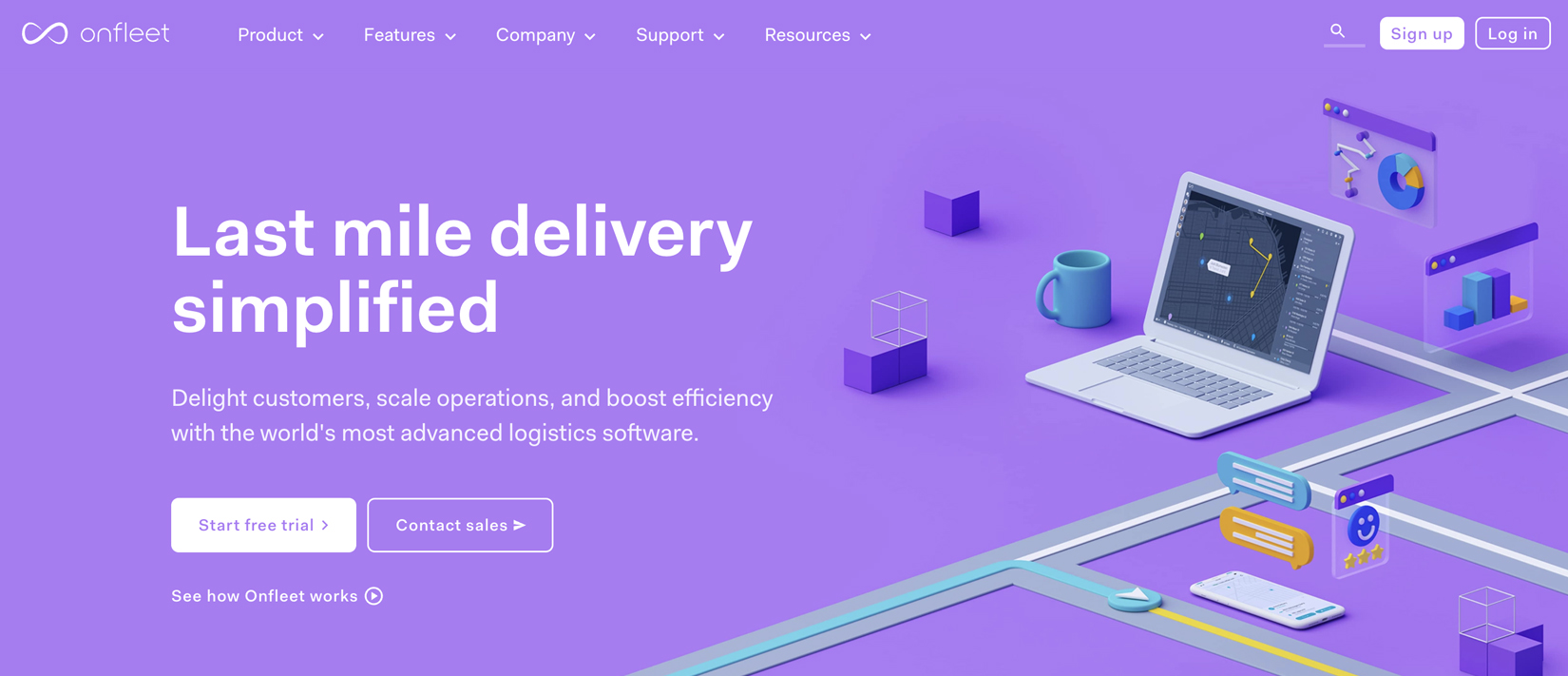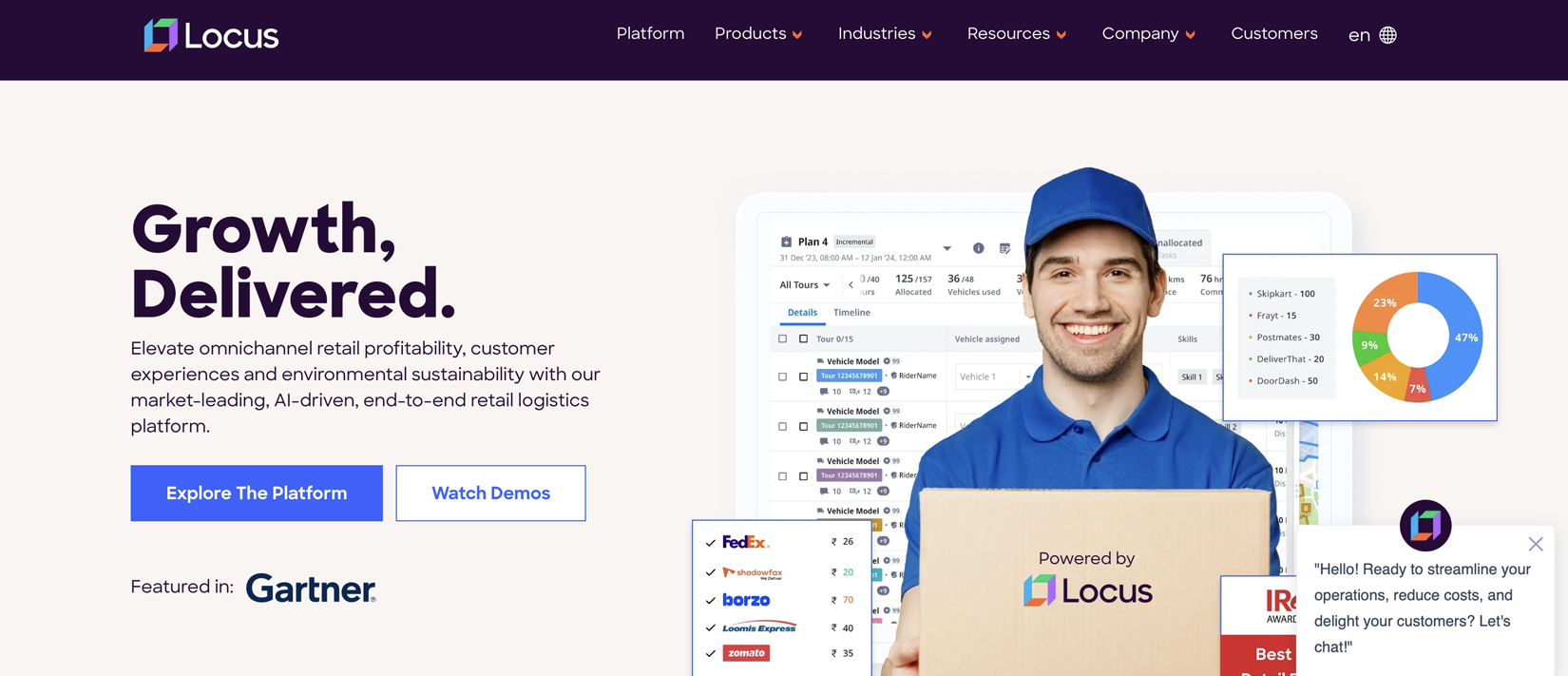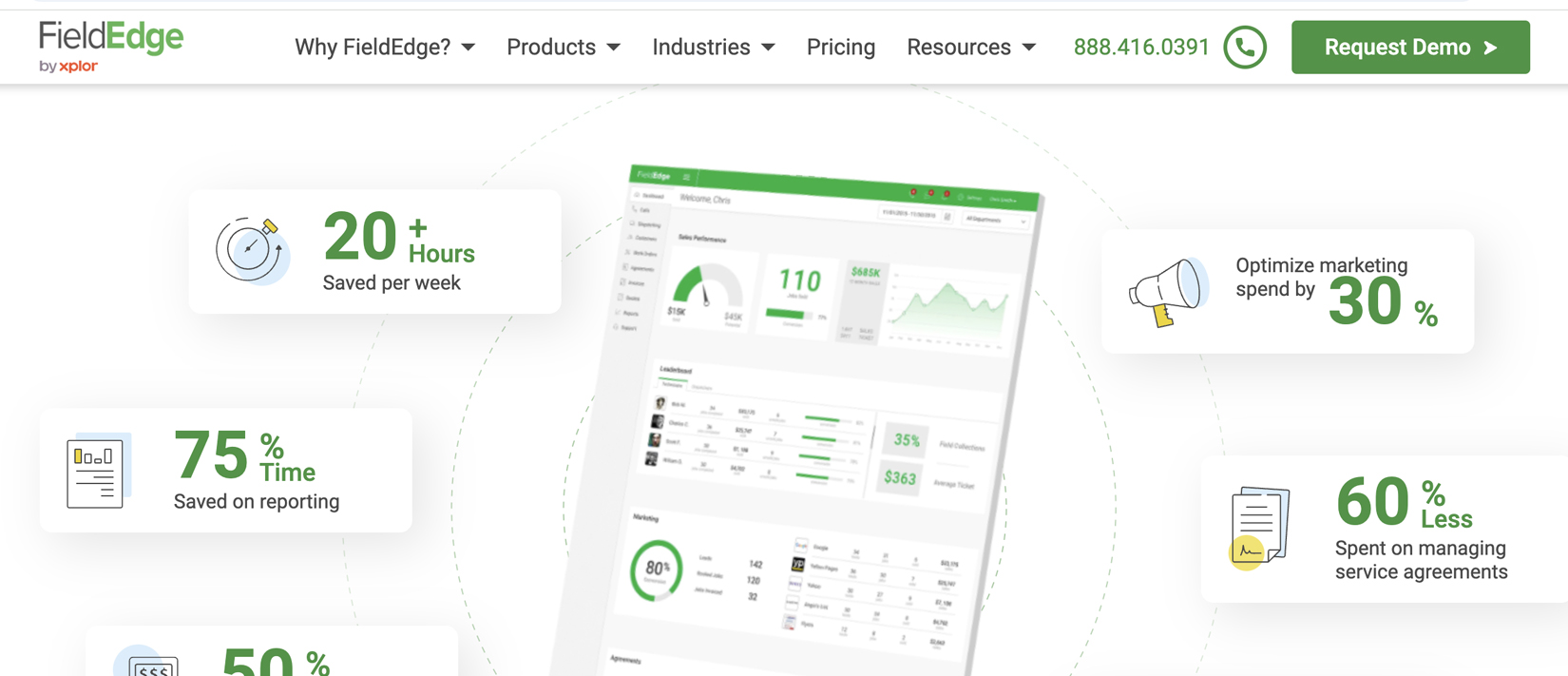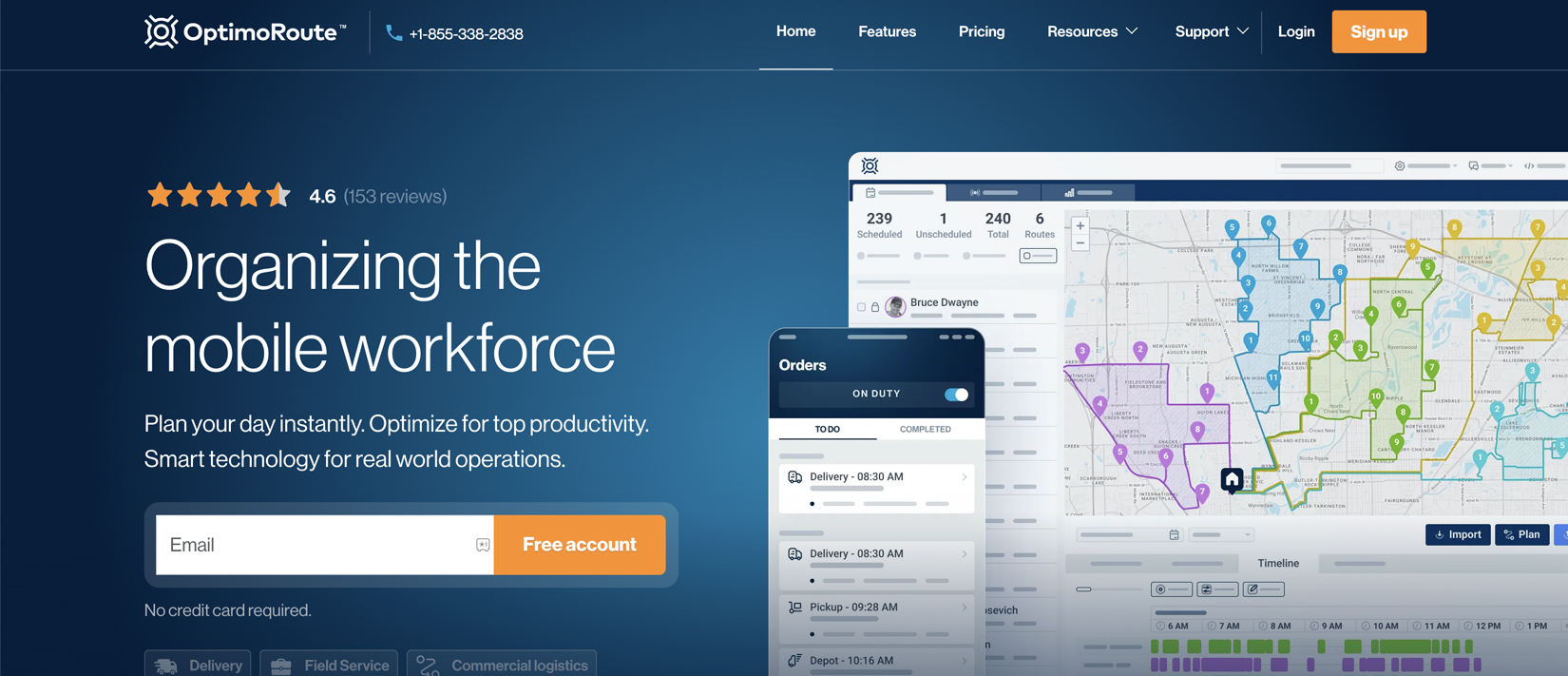
The 6 Best Dispatch Scheduling Software for Managing Large Fleets in 2024
Managing large fleets is a logistical challenge that requires precision and real-time adaptability. Dispatch scheduling software is designed to streamline this process, improving efficiency while reducing operational costs. In 2024, several tools stand out for their advanced capabilities in optimizing fleet management, real-time updates, and automated dispatching.
This blog ranks the top 6 best dispatch scheduling software for managing large fleets, focusing on key features, advantages, and disadvantages.
What is Dispatch Scheduling Software?
Dispatch scheduling software is a digital tool that streamlines the scheduling of drivers, vehicles, and deliveries. It optimizes logistics and transportation operations for greater efficiency. It facilitates the efficient allocation of resources by automating the assignment of tasks based on various factors such as route optimization, vehicle availability, and driver capabilities. This software typically includes features like real-time tracking, automated notifications, and reporting tools, enabling dispatchers to monitor operations effectively.
By using dispatch scheduling software, companies can enhance their operational efficiency, reduce wait times, and improve customer satisfaction. The software allows for adjustments in real-time, helping to accommodate changes in delivery requests or unexpected delays. Ultimately, it empowers logistics managers to make informed decisions for better resource management. This leads to reduced operational costs and improved service delivery across their fleet operations.
Top 6 Dispatch Scheduling Software
1. LogiNext Mile:

LogiNext Mile is one of the top contenders in dispatch scheduling software for large fleets. It is specifically designed to handle multiple deliveries with advanced route optimization and real-time tracking. Growing at an average rate of 120% YoY, LogiNext has 200+ enterprise clients in 50+ countries with headquarters in New Jersey, USA.
Key Features:
1. Automated Dispatch Scheduling: Reduces manual intervention by automatically assigning tasks based on driver availability and proximity.
2. Real Time Tracking: Provides real-time GPS tracking for fleets, ensuring full visibility of operations.
3. Route Optimization: Minimizes fuel costs and delivery times by identifying the most efficient routes.
4. Scalability: Designed for enterprises, this software easily scales as your fleet grows.
5. AI Powered Optimization: Utilizes artificial intelligence to enhance routing and scheduling, ensuring efficient deliveries.
Advantages:
– High level of automation reduces human errors.
– Scalable for growing businesses and enterprises.
– Optimizes both time and fuel costs, increasing operational efficiency.
– Provides real-time updates for both dispatchers and customers.
– Mobile access makes it highly flexible for both dispatchers and drivers.
Disadvantages:
– The software may be a bit advanced for smaller businesses with limited fleets.
2. OnFleet:

OnFleet is a leading delivery management software solution favored by companies aiming to enhance their delivery experience and maximize operational efficiencies. Renowned for its user-friendly interface, robust reporting and analytics, and seamless integration with other technologies, OnFleet has earned the trust of thousands of businesses since its inception in 2015.
Key Features:
1. Intuitive Dashboard: OnFleet’s user-friendly interface makes it easy for dispatchers to assign tasks and monitor fleet activities.
2. Real Time Updates: Provides real-time dispatch scheduling for multiple drivers, ensuring timely deliveries.
3. Driver Tracking and Customer Notifications: Keeps drivers and customers informed at all times.
4. Analytics and Reporting: Generates detailed reports on fleet performance, helping businesses optimize their processes.
Advantages:
– Easy-to-use interface, suitable for companies without in-house tech expertise.
– Provides real-time updates for both dispatchers and customers.
– Strong focus on analytics for performance improvement.
Disadvantages:
– Limited to companies that require extensive customer interaction and notifications.
– May lack advanced features needed for very large fleets or highly specialized industries.
3. Samsara:

Samsara is known for its comprehensive fleet management system, combining dispatch scheduling, telematics, and compliance features. It’s particularly popular for logistics companies focused on safety and operational efficiency. Headquartered in San Francisco, its client base include leading organizations across construction, transportation and warehousing.
Key Features:
1. Telematics Integration: Provides real-time data on vehicle health, fuel usage, and driver behavior.
2. Automated Dispatching: Assigns tasks based on driver location, availability, and current traffic conditions.
3. Compliance Management: Helps ensure that fleets comply with regulatory requirements such as Hours of Service (HoS).
4. Route Optimization: Optimizes routes based on live traffic data to minimize delays.
Advantages:
– Offers a high level of integration, particularly for compliance and safety.
– Suitable for large fleets due to its robust tracking and reporting capabilities.
– Telemetry data helps improve driver safety and reduce operational costs.
Disadvantages:
– Can be expensive for small or medium-sized businesses.
– The platform may require significant setup and training.
4. Locus:

Locus’ AI-powered platform enhances retail customer experiences by optimizing logistics across the fulfillment chain. Its modular, API-first solutions automate decision-making for first, mid, and last miles, reducing costs and ensuring a competitive edge, making it the preferred choice for Retail, FMCG/CPG, and other industries.
Key Features:
1. AI Powered Optimization: Utilizes artificial intelligence to enhance routing and scheduling, ensuring efficient deliveries.
2. Modular Architecture: Offers customizable solutions that can be tailored to specific business needs and integrated with existing systems.
3. API First Approach: Facilitates seamless integration with other software and systems, enhancing flexibility and interoperability.
Advantages:
– Provides a lot of flexibility and customization.
– It is cost efficient and useful for all kind of businesses.
– Provides improvement in operational efficiency.
Disadvantages:
– A learning cure for stuff on the initial stages.
– A bit complex in integration.
5. FieldEdge:

FieldEdge is a cloud-based dispatch scheduling software designed primarily for field service companies, but its flexibility makes it a strong contender for logistics companies as well. With the vision to drive business growth while fostering a positive personal impact on the lives of our customers, each other, and our community.
Key Features:
1. Mobile Access: Drivers and dispatchers can access schedules, routes, and job information from any mobile device.
2. Real Time Updates: Provides real-time updates for drivers and dispatchers to ensure on-time deliveries.
3. Customer Management: Includes features for managing customer details, job history, and preferences.
4. Automated Dispatch Scheduling: Assigns tasks based on driver availability and job requirements.
Advantages:
– Mobile access makes it highly flexible for both dispatchers and drivers.
– Simple and effective customer management features.
– Affordable for small to mid-sized fleets.
Disadvantages:
– Limited features for very large fleets or specialized industries.
– Less focus on advanced route optimization compared to other solutions.
6. OptimoRoute:

OptimoRoute focuses on route optimization and fleet scheduling for large-scale operations, making it a top choice for logistics companies with complex delivery requirements.
Key Features:
1. Advanced Route Optimization: Reduces fuel costs and delivery times by generating the most efficient routes.
2. Real Time Updates: Offers real-time dispatch scheduling for multiple drivers with dynamic route adjustments.
3. Driver Tracking and Performance Metrics: Monitors driver performance, helping companies improve efficiency.
4. Cloud Based Platform: Enables dispatchers to manage fleet activities from any location.
Advantages:
– Excellent for large fleets that require advanced route optimization.
– Reduces fuel costs and improves delivery speed with intelligent scheduling.
– Cloud-based platforms provide flexibility for remote management.
Disadvantages:
– Some companies may find the software too focused on route optimization without other fleet management features.
– Cost may be prohibitive for small businesses.
Conclusion
In 2024, selecting the right dispatch scheduling software is crucial for managing large fleets effectively. The options highlighted—LogiNext Mile, OnFleet, Samsara, Locus, FieldEdge, and OptimoRoute—each offer unique features tailored to different operational needs. From advanced route optimization and real-time tracking to robust analytics and mobile accessibility, these tools enhance efficiency while reducing costs. However, businesses must consider their specific requirements and the scalability of each solution
By investing in the right dispatch scheduling software, logistics managers can significantly improve their fleet operations, ensuring timely deliveries and enhanced customer satisfaction in a competitive landscape. Ultimately, choosing a solution that aligns with business goals is vital for success in fleet management. Click on the red button below and book a demo with LogiNext today!
75







@LogiNext